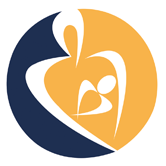Councilors
Kirsi Järvinen-Seppo (USA)

University of Rochester School of Medicine
I am a Professor in Pediatrics, Medicine and Microbiology/Immunology, and the Chief of Pediatric Allergy and Immunology at the University of Rochester, Golisano Children’s Hospital, NY.
I am a Professor in Pediatrics, Medicine and Microbiology/Immunology, and the Chief of Pediatric Allergy and Immunology at the University of Rochester, Golisano Children’s Hospital, NY. I also hold the Founders’ Distinguished Endowed Chair in Pediatric Allergy. I received my M.D. followed by a Ph.D. in Human Milk Immunology at the University of Helsinki, Finland in 2000. After defending my thesis, I completed a Postdoctoral Fellowship at the Jaffe Food Allergy Institute in the Icahn School of Medicine at Mount Sinai, New York, followed by a residency in pediatrics and a fellowship in allergy and immunology at the Mount Sinai Hospital, where I hold an Adjunct Faculty appointment. I am the Director of the Center for Food Allergy that is the FARE Clinical Network Center of Excellence, sponsored by the Food Allergy Research and Education. This is a multidisciplinary program that provides comprehensive care to families with food allergies including specialists in allergy, gastroenterology, dermatology, and counseling for dietary and psychologic aspects. I am a practicing pediatric allergist with clinical interests focused on various types of food allergy and atopic dermatitis.
My NIH-funded translational research program is focused on developmental aspects of the infant systemic and mucosal immune system relating to mechanisms behind development of food allergy, atopic dermatitis and the whole atopic march. I am particularly interested in the role of maternal and infant environmental factors and human milk composition (IgA, soluble mediators, oligosaccharides, microbiome, metabolites) in shaping the early infant immune system and use human cohorts and laboratory bench research approaches to answer the mechanistic questions. I am also interested in antibody-mediated protection against respiratory and diarrheal diseases provided by human milk in infants, funded through the Bill and Melinda Gates Foundation. Utilizing human cohorts, our particular focus is the role of breast milk components and early environmental exposures in the development of microbiome and infant immune system. I have published ~100 peer reviewed manuscripts, reviews and book chapters and am the Associate Editor for Frontiers in Allergy.
I have been a member of ISRHML since 2000 and filled a one-year Councilor position in 2018-19. I served as the Member and the Chair of the Scientific Review Board of ISRHML in 2018-22. As an expert on development of infant immunity and human milk immunologic composition, I have served on many advisory and expert panels relating to breast milk and formula composition including the USDA-HHS Dietary Guidance Development Project for Infants and Toddlers from Birth to 24 Months and Pregnant Women, Integration and Application Working Group (WG4) for “Breastmilk Ecology: Genesis of Infant Nutrition (BEGIN)” project by NICHD, and NIH-FDA sponsored “Use of Bioactive Ingredients in Infant Formula” workshop. As a Councilor, my goal would be to assist the society in strategic planning to promote high-quality research in breastfeeding and human milk composition and to promote training of the next generation of investigators in the field. Our society has a unique opportunity to advance the public understanding of the health benefits afforded by human lactation backed up by the scientific evidence.
Tricia Johnson (USA)

Professor, Department of Health Systems Management Rush University, USA
Tricia is Health Economist and Professor in the Department of Health Systems Management at Rush University. She is a human milk economist with interests that intersect breastmilk provision, economic consequences and policy for premature infants in the NICU. She is currently multiple principal investigator (with Aloka Patel, MD) on two NIH-funded studies that test the short and long-term effectiveness and cost-effectiveness of an intervention aimed at overcoming economic barriers to breastmilk provision for mothers of very preterm infants in the neonatal intensive care unit. Dr. Johnson has been a member of ISRHML since 2012 and is the current chairperson of the Nutrition Economics Special Interest Group within the International Society of Pharmacoeconomics and Outcomes Research. She is passionate about integrating economic theory and methods with the strong basic and translational research collaborations that exist within the society.
INSTITUTION AND LOCATION | DEGREE | Completion Date | FIELD OF STUDY |
Coe College; Cedar Rapids, IA | BA | 05/1993 | Economics and Business Administration |
The University of Iowa; Iowa City, IA | MA | 05/1995 | Hospital and Health Administration |
Arizona State University, W. P. Carey College of Business; Tempe, AZ | MS | 05/2001 | Economics |
Arizona State University, W. P. Carey College of Business; Tempe, AZ | PhD | 12/2002 | Economics
|
Recent grant funding related to my work with the research team includes:
R01 HD107348-01A1
Johnson & Patel (Multi PI)
09/15/2022 – 05/31/2027
Early Childhood Neurodevelopmental, Economic and Nutritional Outcomes among Former Very Low Birth Weight Infants from the Reducing Disparity in Mother’s Own Milk (ReDiMOM) Trial
Eunice Kennedy Shriver National Institute of Child Health and Human Development
R01 MD013969
Patel & Johnson (Multi PI)
04/18/2020 – 12/31/2024
Reducing Disparity in Receipt of Mother’s Own Milk in Very Low Birth Weight Infants, An Economic Intervention to Improve Adherence to Sustained Maternal Breast Pump Use
National Institute of Minority Health and Health Disparities
Additionally, I have been co-investigator on multiple externally funded projects to lead the economic evaluation of interventions to improve health in vulnerable populations. Recently completed studies include:
R01 NR017635
Buchholz (PI)
03/15/2018 – 01/31/2022
Testing Adaptive Interventions to Improve Physical Activity for Sedentary Women
National Institute of Nursing Research
R01 DK111358-01
Appelhans (PI)
02/01/2017 – 01/31/2022
Value and Mechanisms of Home Visitation in Obesity Interventions for Low-Income Children
National Institute of Diabetes and Digestive and Kidney Diseases
R01 HD086211-01A1
Ailey (PI)
09/01/2016 – 08/31/2021
Steps to Effective Problem Solving
National Institute of Nursing Research
Citations include:
Johnson TJ, Patra K, Greene MM, Hamilton M, Dabrowski E, Meier PP, Patel AL. NICU human milk dose and health care use after NICU discharge in very low birth weight infants. J Perinatol. 2019;39:120-8. PMCID: PMC6298834
Johnson TJ, Berenz A, Wicks J, Esquerra-Zwiers A, Sulo KS, Gross ME, Szotek J, Meier P, Patel AL. The Economic Impact of Donor Milk in the Neonatal Intensive Care Unit. J Pediatr. 2020;224:57-65.e4. PMID: 32682581
Johnson TJ, Patel AL, Schoeny ME, Meier PP. Cost savings of mother’s own milk for very low birth weight infants in the neonatal intensive care unit. Pharmacoeconomics – Open. 2022;6(3):451-460. PMID: 35147912
Johnson TJ, Meier PP, Schoeny ME, Bucek A, Janes JE, Kwiek JJ, Zupancic JAF, Keim SA, Patel AL. Study protocol for Reducing Disparity in Receiving Mother’s Own Milk oin Very Low Birth Weight Infants (ReDiMOM): A randomized trial to improve adherence to sustained maternal breast pump use. BMC Pediatrics. 2022;22(1):27. PMID: 34996401
B. Positions and Honors
Professional Experience
2016 – Present | Professor, Department of Health Systems Management, Rush University, Chicago, IL |
2013 – 2020 | Executive Director, Building Healthy Urban Communities, Rush University Medical Center |
2012 – 2020 | Associate Chairperson of Education and Research, Department of Health Systems Management, Rush University, Chicago, IL |
2011 – 2012 | Acting Associate Chairperson, Department of Health Systems Management, Rush University/RUMC, Chicago, IL |
2009 – 2016 | Associate Professor, Department of Health Systems Management, Rush University, Chicago, IL |
2006 – Present | Director, Rush Center for Health Management & Policy Research, RUMC, Chicago, IL |
2002 – 2009 | Assistant Professor, Department of Health Systems Management, Rush University, Chicago, IL |
2001 | Instructor, School of Health Administration and Policy, Arizona State University, Tempe AZ |
2001 | Summer Research Associate, RAND Institute for Civil Justice, Santa Monica, CA |
1998 – 2002 | Research Associate, School of Health Administration and Policy, Arizona State University, Tempe AZ |
1997 – 2000 | Management Engineer, Mayo Clinic Scottsdale, Scottsdale AZ |
1995 – 1997 | Administrative Trainee, Mayo Foundation, Rochester MN |
Honors and Professional Activities
2022 – Present 2021
| Chairperson, International Society of Pharmaceutical and Outcomes Research Nutrition Economics Special Interest Group Incoming Chairperson, International Society of Pharmaceutical and Outcomes Research Nutrition Economics Special Interest Group |
2012 – Present | Full Member, International Society for Research in Human Milk and Lactation |
2009 | Fulbright Scholar to Austria, Austrian-American Educational Commission |
2003 | Program Chair, Workers’ Compensation Research Group Spring Meeting |
2003 | Fellowship, NIA Summer Institute on Aging Research |
2003 | Fellowship, RAND MiniMedical School for Social Scientists |
2003 | Fellowship, RAND Summer Institute on Demography, Epidemiology and Economics of Aging |
2001 | Emeriti Professor Award for the Outstanding Ph.D. Student in Economics |
1999 – 2001 | Preparing Future Faculty Scholar |
1998 – 2001 | University Graduate Scholar |
C. Contribution to Science (Total Publications = 85 original research papers, 5 invited book chapters and 1 book)
Costs and outcomes associated with human milk feeding in very low birth weight infants. My principal contribution to science is translational research focused on the relationship between mother’s own milk with healthcare costs and health outcomes in very low birth weight (VLBW; <1500 g birth weight) infants. VLBW infants are among the most expensive patients in the hospital, and my work has been seminal in quantifying the micro-level costs of care and cost savings associated with reduction in the risks of morbidities in this population. Our published findings have revealed that the cost savings of mother’s own milk reflect potentially different mechanisms for each morbidity. Our team has also published studies on the cost of providing and acquiring mother’s own milk, data which translate readily to day-to-day NICU practice and cost considerations. Most recently, my research has quantified the feeding costs of mother’s own milk and donor human milk from the hospital perspective, capturing both the direct and indirect costs required to support a comprehensive lactation program.
Jegier BJ, Johnson TJ, Engstrom JL, Patel AL, Loera F, Meier P. The institutional cost of acquiring 100 mL of human milk for very low birth weight infants in the neonatal intensive care unit. Journal of Human Lactation. 2013:29(3):390-9. PMCID: PMC4608232
Patel AL, Johnson TJ, Engstrom JL, Fogg LF, Jegier BJ, Bigger HR, Meier PP. Impact of early human milk on sepsis and health-care costs in very low birth weight infants. J Perinatol. 2013;;33(7):514-9. PMID: 23370606
Johnson TJ, Patel AL, Bigger HR, Engstrom JL, Meier PP. Cost savings of human milk as a strategy to reduce the incidence of necrotizing enterocolitis in very low birth weight infants. Neonatology, 2015;107(4):271-6. PMCID:PMC4458214
Patel AL, Johnson TJ, Robin B, Bigger HR, Buchanan A, Christian E, Nandhan V, Shroff A, Schoeny M, Engstrom JL, Meier PP. Influence of own mother’s milk on bronchopulmonary dysplasia and costs. Arch Dis Child Fetal Neonatal Ed, 2017; 102(3):F256-F261. PMCID: PMC5586102
Translation of research findings into NICU best clinical practices, with a focus on removing economic barriers to the provision and use of human milk for mothers of VLBW infants. I have collaborated with my clinical research colleagues to prepare state of the science review papers and book chapters that delineate economic barriers to the provision and use of human milk (e.g., acquisition of equipment, supplies and personnel) for VLBW infants and their mothers. This contribution is important because in multiple instances evidence-based best practices have been disseminated, but have not been adopted due to economic constraints. I have worked to address these barriers using cost-effectiveness analyses and other economic analytic approaches and have focused on translating these economic principles into state of the science papers so that clinicians can apply them to day-to-day decision making about cost implications of human milk feedings in the NICU.
Johnson TJ, Patel AL, Bigger HR, Engstrom JL, Meier PP. Economic benefits and costs of human milk feedings: A strategy to reduce prematurity-related morbidities in the neonatal intensive care unit. Advances in Nutrition. 2014;5(2):207-12. PMCID: PMC3951804
Meier PP, Patel AL, Bigger HR, Chen Y, Johnson TJ, Rossman, B, Engstrom JL. Human milk feedings in the neonatal intensive care unit. In R Rajendram, VR Preedy, VB Patel, Eds. In Diet and Nutrition in Critical Care. New York: Springer-Verlag; 2015.
Meier PP, Johnson TJ, Patel AL, Rossman B. Evidence-based methods that promote human milk Feeding in Preterm Infants. Clinics in Perinatology, F. Mimouni, B. Koletzko (Eds). 2017;44(1):1-22. PMCID: PMC5328421
Meier PP, Rossman B, Patel AL, Johnson TJ, Engstrom JL, Hoban R, Patra K, Bigger HR. Human milk in the neonatal intensive care unit. In Breastfeeding and Breastmilk – From Biochemistry to Impact. PE Hartmann & PP Meier (Eds). Thieme: Stuttgart; 2018.
Long-term health and economic consequences of high-dose, long-duration mother’s own milk feedings for VLBW infants. In the last five years, my research has included studies that examine the longer-term benefits of mother’s own milk feedings for VLBW infants. I have co-authored two studies that have examined neurodevelopmental outcomes and healthcare utilization for these infants in the first two years of life. We found that the dose of mother’s own milk during the NICU stay is positively associated with cognitive scores and inversely associated with subsequent hospitalizations, use of pediatric subspecialists and use of specialized therapies. This growing body of research suggests that the economic benefits of mother’s own milk feedings extend into childhood and is a foundation for the proposed study to evaluate whether work mediates the relationship between maternal race/ethnicity and duration of mother’s own milk provision.
Patra K, Hamilton M, Johnson TJ, Greene M, Dabrowski E, Meier PP, Patel AL. NICU human milk dose and 20-month neurodevelopmental outcome in very low birth weight infants. Neonatology. 2017;112:330-6. PMCID: PMC5683911
Johnson TJ, Patra K, Greene MM, Hamilton M, Dabrowski E, Meier PP, Patel AL. NICU human milk dose and health care use after NICU discharge in very low birth weight infants. J Perinatol. 2019;39:120-8. PMCID: PMC6298834
Cost and cost-effectiveness of interventions to improve health outcomes. In a fourth line of research, I have collaborated with teams of researchers across fields to evaluate the cost and cost-effectiveness of interventions to improve health outcomes across the lifespan. These studies have made a significant contribution to science by quantifying the program and participant costs relative to the outcomes. Most studies to date have failed to account for participant opportunity costs; however, we found that the opportunity costs represent a large proportion of the total societal costs of these interventions. Because of these findings, my research rigorously evaluates the participate out-of-pocket and time costs as an important component of cost and cost effectiveness analyses.
Gross D, Johnson TJ, Ridge A, Garvey C, Julion W, Brusius Treysman A, Breitenstein S, Fogg L. 2011. Cost-effectiveness of childcare discounts on parent participation in preventive parent training in low-income communities. Journal of Primary Prevention, 32(5-6):283-98. PMCID: PMC3253623
Wilbur J, Buchholz SW, Ingram DM, Braun LT, Johnson TJ, Fogg L, Miller AM, Volgman AS, McDevitt J. Effectiveness, efficiency, duration and costs of recruiting for an African American women’s lifestyle physical activity program. Research in Nursing Health, 2013;36(5):487-99. PMCID: PMC3788077
Johnson TJ, Schoeny M, Fogg L, Wilbur J. The cost of increasing physical activity and maintaining weight for midlife sedentary African American women. Value in Health, 2016:19(1):20-7. PMCID: PMC4724643
Wallace S, Johnson TJ, Hendel E, Chakravarthy V, Leanos L, Ansell DA. The financial impact of a partnership between an academic medical center and a free clinic. Am J Med. 2021;134(11):1389-1395.e4. PMID: 34283952
Identifying and quantifying disparities in health outcomes, healthcare service use and costs. Using sophisticated econometric methods, I have evaluated whether disparities exist in healthcare utilization and costs and the downstream implications for health outcomes. Additionally, these analyses have examined whether interventions intended to improve access to care for low income and uninsured individuals have reduced disparities. With many of these analyses being observational studies, I have used a variety of statistical and econometric methodologies, including inverse probability of treatment weighting for causal inference and hierarchical modeling to account for multi-level data.
Patel AL, Schoeny ME, Hoban R, Johnson TJ, Bigger H, Engstrom JL, Fleurant E, Riley B, Meier PP. Mediators of racial and ethnic disparity in mother’s own milk feeding in very low birth weight infants. Pediatr Res. 2019 Apr;85(5):662-670. doi: 10.1038/s41390-019-0290-2. PMCID: PMC6435382
Johnson T, Walton S, Levine S, Fister E, Baron A, O’Mahony S. Racial and ethnic disparity in palliative care and hospice use. Am J Manag Care. 2020;26(2):e36-e40. doi: 10.37765/ajmc.2020.42399. PMID: 32059098
Patel AL, Johnson TJ, Meier PP. Racial and socioeconomic disparities in breast milk feedings in US neonatal intensive care units. Pediatr Res. 2021;89(2):344-352. doi: 10.1038/s41390-020-01263-y. Epub 2020 Nov 13. Review. PMCID: PMC7662724
Longcoy J, Patwari R, Hasler S, Johnson T, Avery E, Stefanini K, Suzuki S, Ansell D, Lynch E. Racial and ethnic differences in hospital admissions of emergency department COVID-19 patients. Med Care. 2022;60(6):415-422. PMCID: PMC9093229
A full list of my publications is available at:
https://www.ncbi.nlm.nih.gov/myncbi/tricia.johnson.1/bibliography/public/
TIG Governing Committee
Eow Shiang Yen

Social Media Chair
Eow Shiang Yen is currently a third-year doctoral student in Community Nutrition at the Department of Nutrition, Faculty of Medicine and Health Sciences (FMHS), Universiti Putra Malaysia (UPM). His doctoral research MYBIOTA is a prospective cohort study aiming to determine the association between gut microbiota with infant health in Selangor, Malaysia. He completed his Master's degree in Community Nutrition at Department of Nutrition and Dietetics, FHMS, UPM, in 2019 with his thesis focusing on the factors associated with autism severity in children with Autism Spectrum Disorder. His Bachelor's degree in Nutrition and Community Health was obtained under the same department in 2017 with First Class Honor, during when he won the the University Award of Best Non-Indigenous Graduate and became the valedictorian of FMHS and the Best Graduate in B.Sc. (Nutrition and Community Health). His research interests include microbiota, gut health, disordered eating and nutritional status of children. He also participates actively in nutrition-related organisations such as Nutrition Society of Malaysia, Malaysian Association for the Study of Obesity, Malaysian Society of Body Composition, American Society for Nutrition, and civil society organisations including Malaysian Youth Council and Young Buddhist Association of Malaysia. Serving as the Social Media Chair for the ISRHML Trainee Interest Group, one of his goals is to utilise his competence and experience in social media channels to attract more followers, create higher engagement, and produce greater publicity impact for the existing ISRHML channels including the Facebook Page and Twitter account. Besides, he will also explore with the ISRHML Social Media committee whether there is a necessity for creating more social media channels which can diversify and amplify the publicity efforts of ISRHML.
Kelsey Johnson

Global Representation Chair
Kelsey Johnson is a Postdoctoral Fellow at the University of Minnesota, whose research focuses on genetic influences on human milk and its consequences for infant health. Working with the Mothers and Infants LinKed for Healthy Growth (MILK) study, she has explored how maternal genetic variation impacts milk gene expression, the milk metabolome, and the infant gut microbiome. She received her PhD in Genetics & Epigenetics from the University of Pennsylvania. As TIG Global Representation Chair, she hopes to expand the global diversity of ISRHML's trainee membership and increase opportunities for underrepresented trainees to attend the ISRHML congress.
Adrianna Greco

Newsletter Editor
Adrianna Greco is a first year PhD student at the University of British Columbia, Canada as well as a Registered Dietitian. She is passionate about maternal and infant health, which drew her to the world of human milk research. She completed her master’s degree at the University of Toronto, in which she validated methodology to assess the micronutrient content of donor human milk. Her doctoral work is focused on assessing the nutritional status of toddlers and their families along with health outcomes to support their growth and development. As Newsletter Editor, she hopes to showcase the research and initiatives undertaken by the ISRHML community with a specific focus on trainee members of ISHRML. She would ultimately like to expand the reach of Milk Minutes so that the novel work being done in ISRHML can be shared with other researchers, professionals, and scientific groups to promote human milk feeding and the scientific progress in this field.
Sarah Nyquist

Trainee Membership Chair
Sarah Nyquist is a bioinformatics postdoctoral fellow at Gladstone Institutes. She completed her PhD in Computational and Systems Biology at Massachusetts Institute of Technology focusing on scRNA-seq analysis of mucosal tissues to study human health and disease, including cells in human milk. Her current research focuses on developing statistical tools for analyzing data focused on applications in mammary cell function during lactation. Outside of research, she loves spending time with her family (and cats), visiting museums, attending plays, sewing, and hiking.

